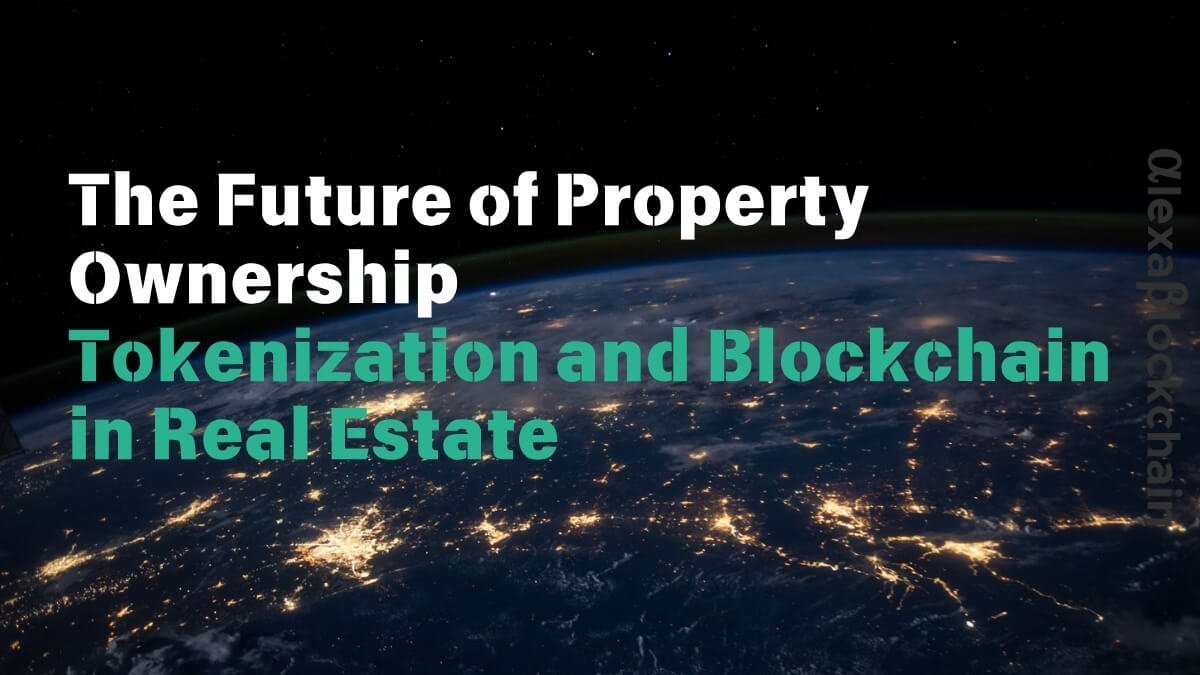Real estate traditionally relies on manu -papers, with a mutual tied to physical records. With the entry of blockchain and tokenization into the industry, more permanent ledgers record the transactions. These innovations convert the ownership of digital tokens and split assets into many shares so that investors can have possessions at a price component.
Unlocking the ownership of ownership with tokenization
Tokenization lowers entry barriers and resolve the effectiveness of traditional real estate. Instead of a person or group that owns a property, real-world assets are divided into digital shares that many people can belong to at once. A wise contract – an agreement that automatically holds all compliance, transactions and movement -owner – ensures each token. An asset that costs millions -million can be damaged by the road -aid or thousands of tokens.
Smaller investors can pay a little to $ 100 per token, depending on the platform. This is especially important because the ownership of the owner becomes less accessible. When an investor cannot afford to place at least 15% of the total value of a property, fractionalization becomes an attractive choice for varying an investment portfolio without providing large capital to a single owner. This will help maintain the integrity of the owner even though a wide range of investors have access to the ownership of a single owner.
The power of blockchain in real estate
Blockchain is the foundation of tokenized real estate. It replaces manual records with a safe, transparent and tamper-proof digital ledger. Ethereum-like standards like ERC-721 and ERC-20-Enables different types of tokens, from fractional ownership to assets that make up revenue.
Advanced features such as dynamic non-adjusted tokens will automatically update property-like details-like renovations or new on-chain values, which provide instant investors, accurate views rather than long reports.
Basic benefits of real estate tokenization
The appeal of tokenization extends beyond freshness. It directly addresses systematic futilities in the real estate sector by offering many benefits.
Increased liquidity
Transactions often last a long time with traditional real estate processes. Tokenized assets can be exchanged such as stocks, enhancing flexibility for investors.
Reduced transaction costs
Smart contracts eliminate the need for mediators such as agents, escrow and attorney services. This streamlining can cut 30%transaction costs, according to estimates from blockchain experts.
Enhanced accessing
Tokenization democracy access to high-value assets. There are no need for investors the road -thousands of dollars to get exposure to expensive ownership. It alleviates global investment, which allows participation in countries without traditional geography or regulation.
Automatic compliance
Policies such as ID checks, anti-money laundering and tax reporting can be built on the system. This reduces compliance costs while ensuring regulatory alignment with less paperwork.
Implementation challenges and regulatory barriers
While cryptocurrencies are satisfied with the government’s zero control, regulatory challenges remain obstructions throughout the implementation. One of the biggest concerns is obedience. In the US, tokenized real estate often qualifies as a security, which means that security regulations and exchange commissions need to be followed unless the exceptions apply.
Another challenge is the security of the wise contract. Weaknesses in poorly written contracts can lead to losses on Defi platforms, which can bring to real estate. Proposals such as multi-layered security audits, encryption and validation protocols should be set up to prevent exploitation.
Technical complexity remains a hindrance to adoption. Stable systems should include blockchain networks, property management software, data resources and easy-to-use interfaces for functional coordination.
Chances of a Transparent and Military Market
While the challenges in the early stages exist, long -term benefits are too big to ignore. Emerging secondary markets for real estate-model tokens after crypto exchanges-will provide liquidity while activating real-time pricing, monitoring of transaction history and peer-to-peer exchange. Such developments can eliminate opacity and futility that determine the current ownership markets.
Moreover, blockchain-based transparency can reduce fraud, as each transaction and ownership change has been recorded unchanged. This innovative can be especially benefiting from the development of economies where ownership rights are often debated or poorly documented.
Real estate is that -reimagied with blockchain technology
Tokenization and Blockchain introduce new real estate -owned opportunities. Fractional Investment makes properties more accessible and maintain updated real-time information. This technology provides unacceptable efficiency and security in the transactions. However, successful adoption depends on the thoughtful implementation. Following the safety of smart contract and regulation should be prioritized. As the infrastructure grows and the market is increasing, the tokenized real estate stands to become a foundation pillar in the future of the owner.
Also Read: SKALE LABS is launching industry-FIRST MEV-resistant blockchain for AI-Driven Finance
Denial: The information provided to Alexablockchain is for information purposes only and does not generate financial advice. Read the complete decline here.
Image credits: Canva
